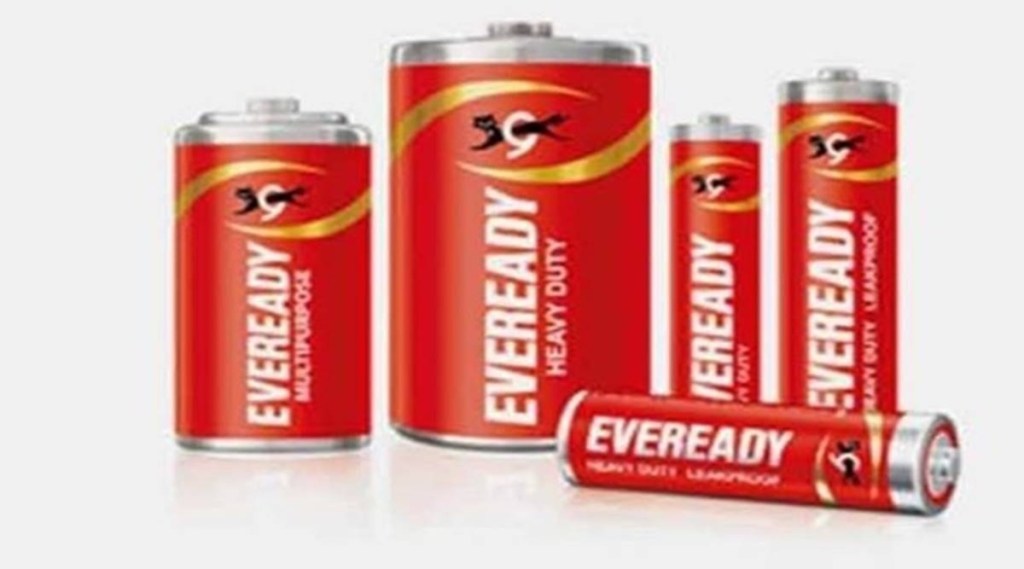Eveready is not under stress and it is making payments to its lenders, so it does not require a resolution, then managing director Amritanshu Khaitan said after the battery maker’s 84th annual general meeting in September, 2019.
Khaitan also said the company is concentrating on improving its profitability and reducing the leverage by selling of non-core assets.
During 2018-19, the Williamson Magor group flagship’s net profit was Rs 47.26 crore with a net sales of Rs 1442 crore. Dry cell battery segment had a healthy Ebidta of Rs 131.77 crore with a 50% market share.
“Your company remains focused to reduce its borrowings… met its financial commitments in servicing debt and repayment. Capital expenditure program was fully met,” Eveready had informed shareholders in its Annual Reports for 2018-19. The company’s debt has now come down to around Rs 350 crore.
But financial conditions were under severe stress for two debt-ridden companies of the Khaitan family-promoted group, troubled engineering entity McNally Bharat and tea major McLeod Russel. The two companies were in talks with their lenders to come up with resolution plans separately. Creditors had dragged both the companies to the bankruptcy courts.
McNally Bharat’s net loss stood at a whopping Rs 466 crore in 2018-19, on the back of subdued industrial growth and difficult financial conditions. McLeod Russel had a loss of Rs 4.42 crore even after selling several tea estates to improve its cash flow. Yes Bank in 2019-end moved NCLT against McLeod on account of a loan default.
The financially stressed group suffered a major setback in November, 2019 when Aditya Birla Finance sold 25 lakh shares of Eveready after those pledged shares had been invoked by the financial services company. It resulted in dilution of promoter stake in Eveready, a key company for the group.
It was the first week of October, 2020. For the first time, promoter shareholding in Eveready fell below 5%, as banks and financial institutions continued to invoke and sell pledged shares of the battery maker for recovery of dues from ailing group companies. Eveready shares had been pledged with financial institutions and banks for securing outstanding dues of McNally Bharat and other group firms.
The Khaitans had held a comfortable 27.39% equity stake in Eveready at the end of the third quarter ending December 2019.
In July 2020, the Burman family, Dabur promoters, had acquired around 8.48% additional equity stake in the battery major via open market operations, taking its holding to 19.84%. Burmans became the single largest shareholder of Eveready. In 2019-20, the battery segment, on a turnover of `728.99 crore, recorded its highest Ebidta margin at 21.1%. Profit after tax stood at Rs 179.57 crore.
Under Khaitan’s leadership, the company had already diversified to the marketing of electrical & lighting products and forayed into the small home appliances segment to improving turnover and profitability.
On the other hand, in August last year, McNally had received a notice from one of its lenders to show cause as to why the company or its promoters and directors should not be included in the list of wilful defaulters.
Amid this scenario, Eveready’s amounts of outstanding inter-corporate deposits (ICDs) to stressed promoter group companies increased. Auditor also flagged off the matter of the company’s unsecure ICDs to “certain companies that are part of the Promoter Group”. Earlier, rating agencies had raised concerns over its high net leverage and weakened liquidity amid financial support extended to the group companies.
Mohit Burman, Dabur vice chairman, had been emphasizing that Eveready should be run “professionally”. Its board had in August last year appointed Suvamoy Saha, then a non-executive director, as joint MD. Significantly, appointing a joint MD was in line with what the Burman family wanted.
Saha assumed charge as the new MD after chairman Aditya Khaitan and managing director Amritanshu Khaitan resigned on last Thursday following the recent open offer from the Burmans.
“Because of the share pledged to support the ailing group companies, Khaitans lost control over Eveready,” senior company officials told FE. Amritanshu Khaitan and his uncle Aditya Khaitan were not available for comments.
In a letter to the board on Thursday, Khaitan said as the Burman family expressed its interest to take management control of the company and give new leadership, it would be “appropriate” for him to step down from the board.
On March 1, a day after making the open offer to acquire an additional 26% share of the company, Dabur vice chairman Mohit Burman told FE that his family wants to acquire control and intends to be a promoter of Eveready as it believes if run “properly in a professional manner” with new talent, the company could grow at a much faster pace and profitably.
“The existing shareholding structure was not tenable. This company now needs to chart out on its own under a new leadership. Hopefully, we can provide the same,” Burman said in an email interaction.
The Burman Group wants appropriate representation on the board through appointing three directors. The family will want to appoint a chairman after the open offer.
“Eveready has been a very strong brand. But the brand was in between losing its corporate image. That was hurting me. I think Eveready will get back its old glory, whatever little it has lost, following the change of ownership,” that is how a former senior group official reacted to the Burmans’ open offer.
Eveready was earlier owned by the erstwhile Union Carbide India. Khaitans fought a bitter battle with Nusli Wadia’s Bombay Dyeing to acquire it in 1993.


